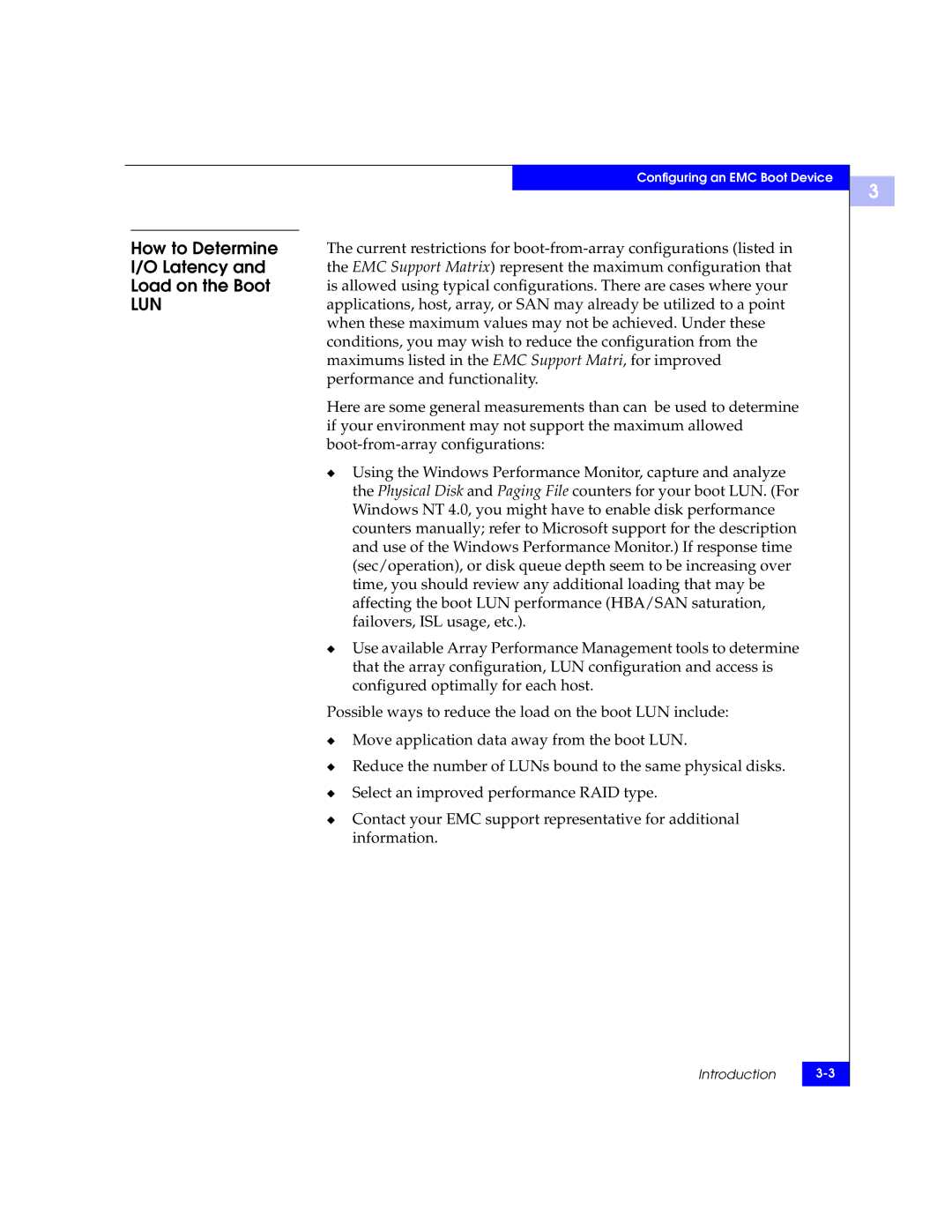
How to Determine I/O Latency and Load on the Boot
LUN
Configuring an EMC Boot Device
The current restrictions for
Here are some general measurements than can be used to determine if your environment may not support the maximum allowed
◆Using the Windows Performance Monitor, capture and analyze the Physical Disk and Paging File counters for your boot LUN. (For Windows NT 4.0, you might have to enable disk performance counters manually; refer to Microsoft support for the description and use of the Windows Performance Monitor.) If response time (sec/operation), or disk queue depth seem to be increasing over time, you should review any additional loading that may be affecting the boot LUN performance (HBA/SAN saturation, failovers, ISL usage, etc.).
◆Use available Array Performance Management tools to determine that the array configuration, LUN configuration and access is configured optimally for each host.
Possible ways to reduce the load on the boot LUN include:
◆Move application data away from the boot LUN.
◆Reduce the number of LUNs bound to the same physical disks.
◆Select an improved performance RAID type.
◆Contact your EMC support representative for additional information.
Introduction | |
|
|
3
